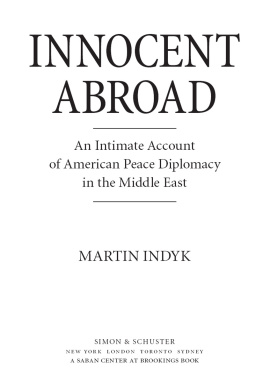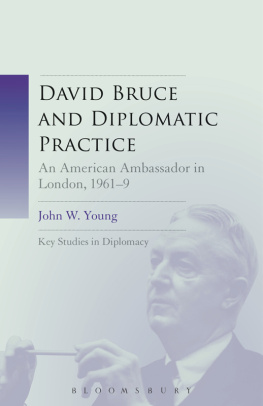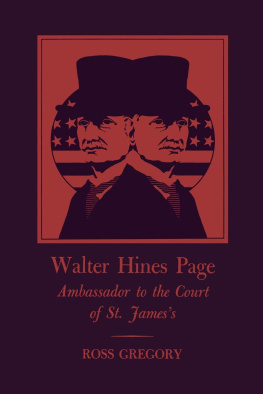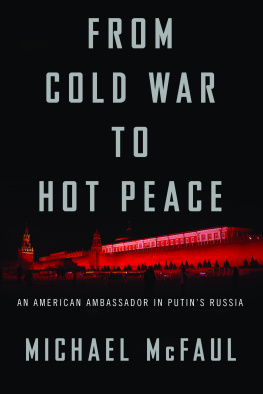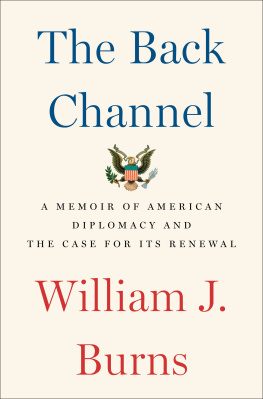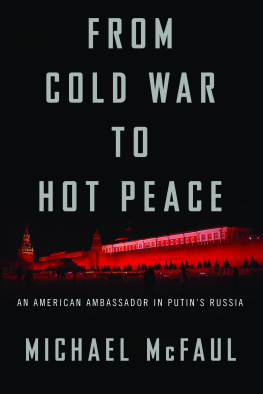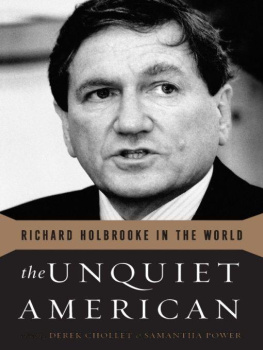Thank you for downloading this Simon & Schuster eBook.
Join our mailing list and get updates on new releases, deals, bonus content and other great books from Simon & Schuster.
C LICK H ERE T O S IGN U P
or visit us online to sign up at
eBookNews.SimonandSchuster.com
We hope you enjoyed reading this Simon & Schuster eBook.
Join our mailing list and get updates on new releases, deals, bonus content and other great books from Simon & Schuster.
C LICK H ERE T O S IGN U P
or visit us online to sign up at
eBookNews.SimonandSchuster.com

Simon & Schuster
1230 Avenue of the Americas
New York, NY 10020
www.SimonandSchuster.com
Copyright 2014 by Christopher Hill
All rights reserved, including the right to reproduce this book or portions thereof in any form whatsoever. For information, address Simon & Schuster Subsidiary Rights Department, 1230 Avenue of the Americas, New York, NY 10020.
First Simon & Schuster hardcover edition October 2014
SIMON & SCHUSTER and colophon are registered trademarks of Simon & Schuster, Inc.
All photos courtesy of the author, except for images 5, 17, and 19, which are official White House photos, and image 28, which is a U.S. State Department photo.
The Simon & Schuster Speakers Bureau can bring authors to your live event. For more information or to book an event, contact the Simon & Schuster Speakers Bureau at 1-866-248-3049 or visit our website at www.simonspeakers.com.
Interior design by Ruth Lee-Mui
Jacket design by Jackie Seow
Jacket art: background Jerome Sessini/Magnum Photos; inset, left to right: courtesy of the author, AP Photo/Greg Baker, Aamer Madhani/USA Today
Library of Congress Cataloging-in-Publication Data is available.
ISBN 978-1-4516-8591-6
ISBN 978-1-4516-8595-4 (eBook)
Dedication
To the memory of my parents and all they taught me about the world,
and
To all the men and women of the foreign service and their families
who accepted difficult assignments in outposts far from home,
and
To my children Nat, Amy, and Clara
who did their share of time in far-flung outposts,
and
To my loving wife, Julie.
Contents
PROLOGUE
I t was July 2009 and I had never been to the capital of Dhi Qar Province before. Nasiriya lies in south-central Iraq about 185 dusty miles southeast of Baghdad. It looked like other impoverished southern Iraqi towns I had seen in my first few months in Iraq, neglected for decades by Saddam Hussein, left out in the desert sun and sandstorms to fend for themselves. The motorcade trip up from Tallil Air Base, where I had arrived in a small military prop aircraft earlier in the morning, took about an hour and a half but seemed much longer as we passed endless two-story buildings, dilapidated fences, and dry riverbeds and canals. Men wrapped their heads in traditional keffiyeh and moved slowly along the side of the road, as if to conserve energy in the July heat, not appearing to notice the added dust caused by our six black armored Chevy Suburbans as we made our way to a meeting with the Provincial Council. Signs and posters bearing Muqtada al-Sadrs dyspeptic glare didnt seem to add to or detract from the dcor of the otherwise drab surroundings. His image, too, was cloaked in dust. I stared out the window from my seat in the back of the vehicle, my mind wandering at times to the broader project of Iraq, what it had done to us, what it had done to the Iraqis, and thinking perhaps not so literally: when are we going to get there?
I had come from Baghdad to Dhi Qar Province to do what U.S. ambassadors do all over the world: meet with local officials and get a sense of what is on peoples minds outside the confines of the capital city. U.S. forces had liberated Nasiriya in their triumphant march to Baghdad in 2003. The province was almost entirely Shia, the majority sect in Iraq that included some of the most trod-upon victims of the Saddam Hussein regime. Our forces expected jubilant crowds to greet them with rose petals, as our vice president at the time had predicted on national television with his confident tone of matter-of-fact certainty that fooled some and infuriated the rest. Instead, when our marines burst through Nasiriya in spring 2003, scattering Saddams forces, they saw pretty much what I saw: no joy in dustville, just ordinary people who, all things being equal, would probably have liked us to leave as soon as possible.
We arrived at the city hall and slowly piled out of our vehicles. I had taken my flak jacket (required attire on these trips) off in the car, not wanting to be seen by the staring Iraqis as if I expected one of them to shoot at me. It seemed so lacking in trust. I glanced around at the five-story apartment buildings surrounding us, wondering how the security advance team could possibly manage to deal with the kinds of random threats that could come from behind any one of those numerous windows. I looked around at the shops and the people on the streets, whose languid pace was in sharp contrast to the frenetic movement of the taxis and pickup trucks that seemed to be in a perpetual drag race. I walked up the half-dozen steps and met the Iraqi protocol official, who greeted me warmly (as Iraqis do so well) and escorted me and a few others into the building, while the rest of the security team waited in front of the building inside the SUVs, their motors still running to ensure a fast getaway, and, perhaps more practically, to keep the air conditioners going.
The head of the provincial assembly was not in town that day, so I was greeted as I emerged from the coffin-sized elevator with the leader of my security detail by the deputy head of the provincial council, Abdul Hadi Abdullah Mohan. The elevator had grunted and groaned the three-floor distance as if it had been asked to do something utterly beyond its capabilities. Mohan, perhaps out of shyness or something else, didnt appear any more enthusiastic about greeting me than the elevator had been in conveying me, so I set to work to try to put him at ease, and say how pleased I was to be in Dhi Qar Province for the first time.
We sat down in his small office and were soon joined by several members of the provincial assembly, who together with the embassy and provincial reconstruction team staff made the office seem even smaller. Iraqi staffers dragged extra chairs through the door, their wooden legs screeching on the hard marble floor as if, like the elevator, they were being taken to a place they didnt want to go.
After initial pleasantries, a ritual I knew all too well from my years living in the Balkans (the western part of the same Ottoman Empire that Nasiriya had spent so many centuries under), I opened with a point I would often make in such settings: the United States desires a long-term relationship with the people of Iraq, provided that the people of Iraq want the same. Our troops would be drawing down, but our interest in the well-being of the Iraqi people is enduring. I told him that while it is true the United States is very far away, Iraq would always be very close to our hearts. The war was a very difficult time for all. I described the agreements we had put in place with Iraq, the first governing the presence of our troops, and the second setting out our civilian relationship with Iraq. Thin gruel, to be sure, but nonetheless the documents could show the Iraqis that somebody had at least taken the time to put down on paper the accoutrements of what a normal relationship could eventually look like.
Next page







